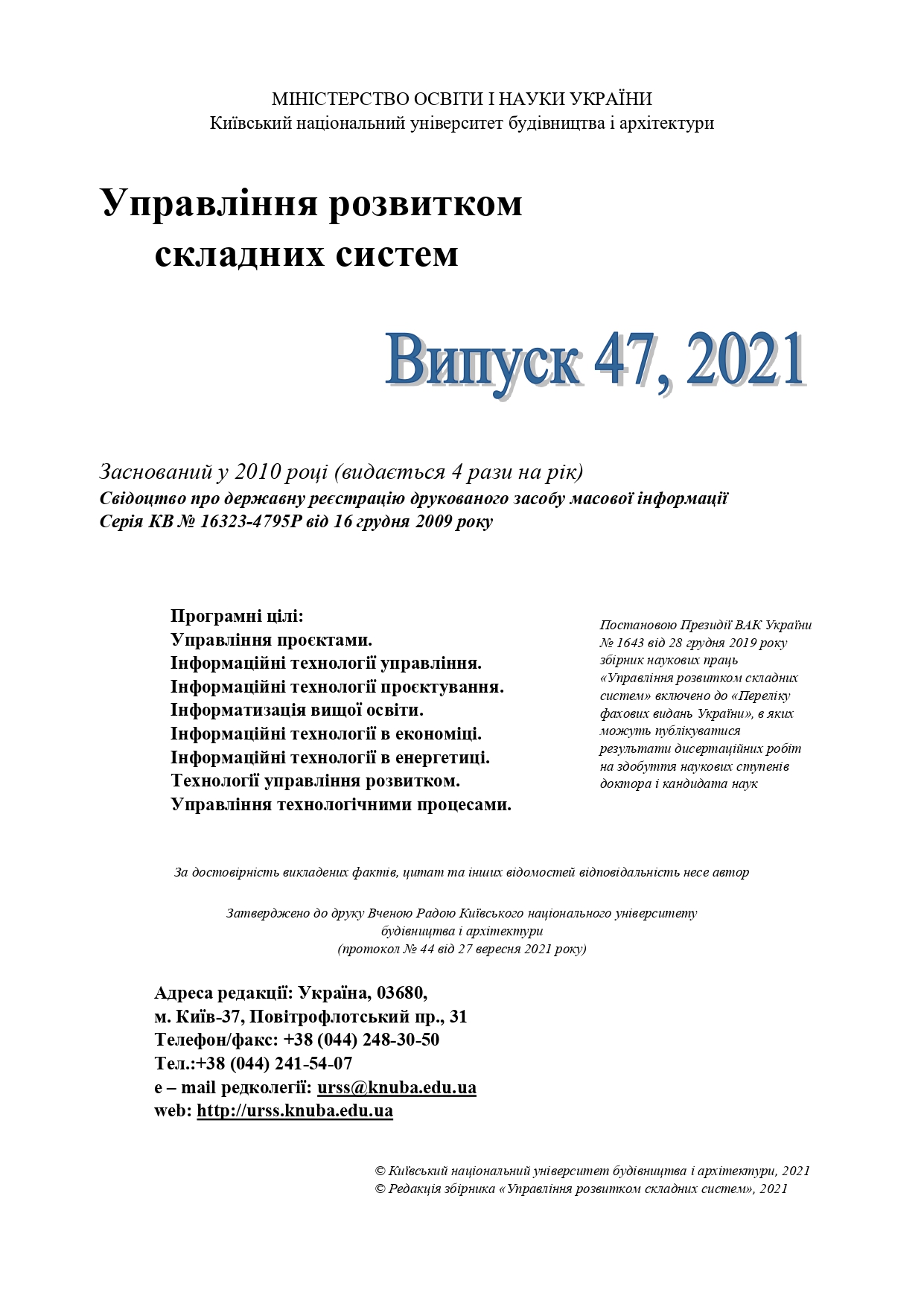REVEALING SIGNIFICANT CHEMICAL COMPOSITION EFFECTS ON THE SUPER ALLOYS PERFORMANCE BY DATA MINING TECHNIQUES APPLICATION
DOI:
https://doi.org/10.32347/2412-9933.2021.47.180-189Ключові слова:
industrial superalloys, chemical compositions, computer statistical investigations, performance indexes, Data Mining techniques, dendrogramsАнотація
Based on the early developed integrated investigation approach combining mutually consistent computer aided: statistical exploratory techniques, multiple regression models development, Monte-Carlo simulations and multipurpose manufacturing technology parameters optimization, computer statistical investigations of chemical composition effects on some basic performance characteristics of modern industrial superalloys (SAs) were conducted. According to the developed approach, the Data Mining-based C&RT statistical technology was used in the current work as the first stage of the further analysis. An important feature of the developed approach to the “passive experimentation” in general and the applied technique in particular was emphasized as both providing minimal investigation expanses, as compared to the “active” one and so having no alternative in free market economic conditions. As the stage primary results, the dendrograms were constructed providing the following statistically grounded visual information for each SAs controlled performance index: – a full list of statistically significant chemical elements; allowable variants of the elements combinations; limits of the chemical element concentration intervals spillover of which provides changes in the chemical elements combinations; variation tendencies for the control indexes within the revealed concentration intervals. Interactions of the most of the chemical elements comprised by SAs in their effects on the investigated performance indexes were shown. High effectiveness of the obtained dendrograms application to reveal individual and mutual chemical element effects on the multi element alloys performance together with uniqueness of such an information for industrial alloys were emphasized. Some prospect possibilities were noted for the obtained dendrograms application: - as a first stage of a multi-parameter process analysis in industrial conditions, – a ground stage of the multiple regression models further development and final multipurpose technological processes optimization conducting.
Посилання
Reed, R. C. (2006). The Superalloys: Fundamentals and Applications, Cambrige University Press.
Geddes, B., Leon, H., Huang, X. (2010). Superalloys: Alloying and Performance, ASM International, Materials park, Ohio.
http://www.dierk-raabe.com/superalloys. html
Grain boundary engineering to overcome hot-cracking in additively-manufactured superalloys. (2019). Acta Mater.
Kontis, P., Chauvet, E., Peng, Z. (2018). Elemental segregation to antiphase boundaries in a crept CoNi-based single crystal superalloy. Scripta Materialia, 157, 62–66.
Makineni, S., Lentz, M., Neumeier, S. (2014). Elemental partitioning and mechanical properties of Ti- and Ta-containing Co-Al-W-base superalloys studied by atom probe tomography and nanoindentation. Acta Materialia, 78, 78–85.
Povstugar, I., Choi, P. P., Neumeier, S. (2012). Microstructural evolution of a Ni-based superalloy (617B) at 700°C studied by electron microscopy and atom probe tomography. Acta Materialia, 60, 1731-1740.
en.mwikipedia.org/wiki/Many-body_problem. html
en.mwikipedia.org/wiki/Condensed_matter _physics. html
en.mwikipedia.org/wiki/Few-body_systems.html
Sulzer, S., Hasselqvist, M., Reed, R. (2020). The effects of Chemistry Variations in New Ni-based Superalloys for Industrial Gas Turbine Applications. Metallurgical and Vaterial Transactions, 51, 4902-4921.
Ganji, D., Rajyalakshmi, G. (2020). Influence of Alloying Compositions on the properties of Ni-based Superalloys: A Review. Recent Advances in Mechanical Engineering, 537-555.
Pyczak, F., Devrient, B., Mughrabi, H. (2004). The effects of different alloying elements on the thermal expansion coefficients, lattice constants and misfit of ni-based superalloys investigated by X-ray diffraction. Superalloys, 827-836.
Phys.org/news/2007-06-nanoparticles – future-superalloy-metals.html
Alhoniemi, E., Hollmn, J., Simula, O., Vesanto, J. (1999). Process monitoring and modeling using the self-organizing map. Integrated computer-Aided Engineering, 6(1), 3-14.
Michael, A. (2004). Cooperative data mining. M2004, 7th annual Data Mining Technology Conf. USA.
Tkachenko, I. (2005). Forecasting service effectiveness of industrial products based on the multipurpose optimization of material properties. Ukrainian Metal Journal, 4, 20-29.
Tkachenko, I., Miroshnichenko, V. (2004). Multipurpose optimization of heat strengthening technology for thick sheets made of weldable high strength steels by using “Data Mining” computer technology. Visnik PSTU, Mariupol, PSTU, 14, 111-117.
Method for specifying metallic materials tendency to embrittlement. Patent Ukraine №71819, А7G01N3/ 00; № 20031212811; Applied 29.12.2003; Printed.15.12.2004, Bulletin Inventions and Discoveries №12. p. 3–5.
Miroshnichenko, V., Simkin, A. (2020). An integrated approach to improve effectiveness of industrial multi-factor statistical investigations.CMIS-2020: Proceedings of the 3-d International Workshop (Zaporizhzhia, April-May 2020), 1-2808, pp. 526–535.
Tkachenko, I., Miroshnichenko, V. (2005). Guaranteed strength improvement in micro-alloyed boron – containing steels by optimizing their chemical composition and heat treatment technology. Visnik PSTU, Mariupol, PSTU, 15, 68 – 73.
##submission.downloads##
Опубліковано
Як цитувати
Номер
Розділ
Ліцензія
Авторське право (c) 2021 Ben Nengjun , Igor Tkachenko , Victoria Miroshnichenko

Ця робота ліцензується відповідно до Creative Commons Attribution-NonCommercial-NoDerivatives 4.0 International License.

